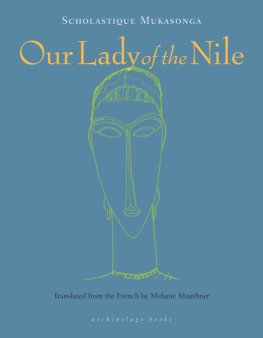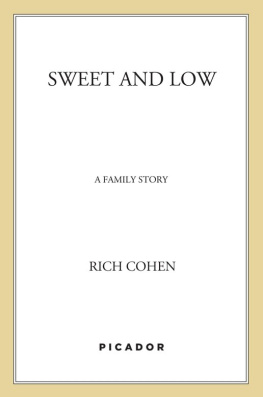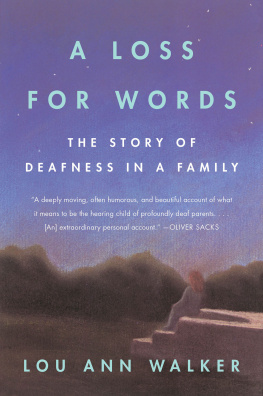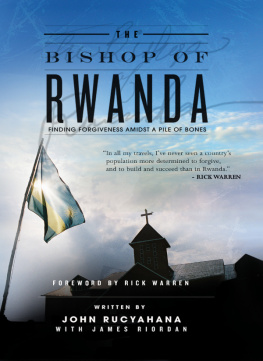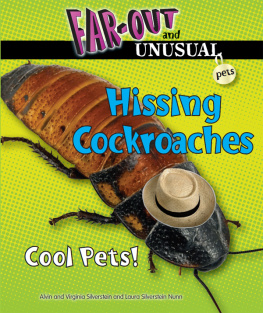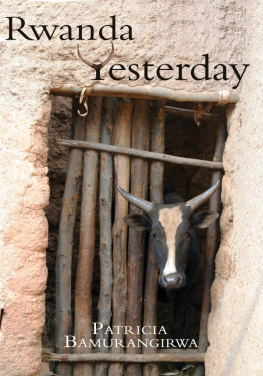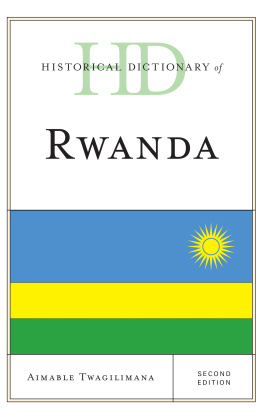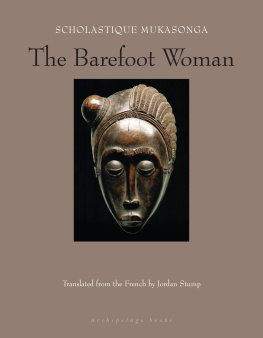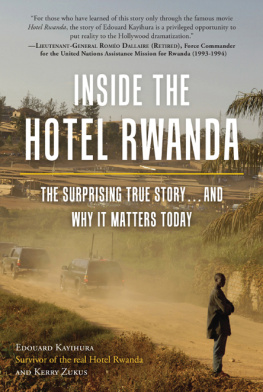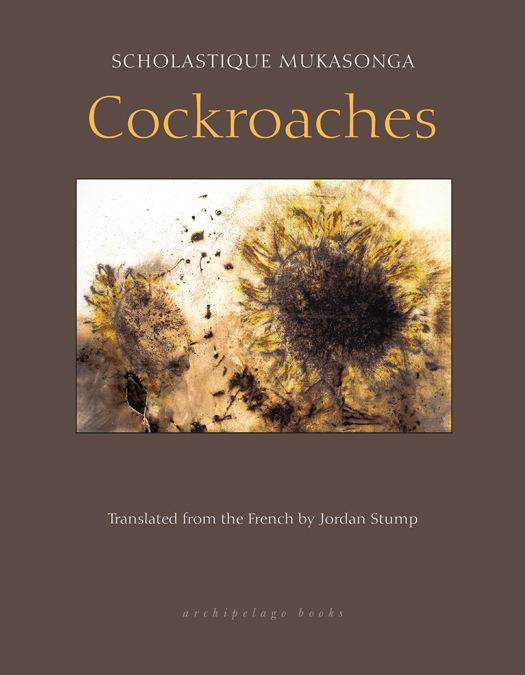

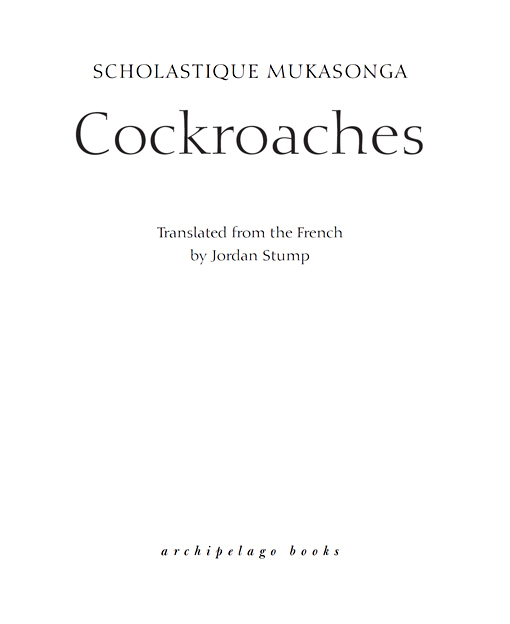
Copyright Editions Gallimard, Paris, 2006
English language translation Jordan Stump, 2016
First Archipelago Books Edition, 2016
All rights reserved. No part of this book may be reproduced or transmitted in any form without prior written permission of the publisher.
Archipelago Books
232 Third St. # A111
Brooklyn, NY 11215
www.archipelagobooks.org
Library of Congress Cataloging-in-Publication Data
Mukasonga, Scholastique, author. | Stump, Jordan, 1959- translator.
Cockroaches/Scholastique Mukasonga; translated by Jordan Stump.
[Inyenzi, ou, Les cafards. English]
Brooklyn, NY : Archipelago, 2016.
LCCN 2016025248 | ISBN 9780914671534 (paperback)
LCC DT450.443.M8513 A3 2016 | DDC 967.57104/31 [B] dc23
LLC record available at https://lccn.loc.gov/2016025248
Distributed by Penguin Random House
www.penguinrandomhouse.com
Cover art: Cai Guo-Qiang
Cet ouvrage a bnfici du soutien des Programmes daides la publication de lInstitut Franais.
This work, published as part of a program of aid for publication, received support from the Institut Franais.
Cet ouvrage a bnfici du soutien du Ministre des Affaires trangres et du Service Culturel de lAmbassade de France aux Etats-Unis.
This work received support from the French Ministry of Foreign Affairs and the Cultural Services of the French Embassy in the United States.
Archipelago Books is grateful for the generous support of the Lannan Foundation, the National Endowment for the Arts, the New York City Department of Cultural Affairs, and the New York State Council on the Arts, a state agency.
eBook ISBN: 978-0-914671-54-1
v3.1
For everyone who died at Nyamata in the genocide,
for Cosma, my father,
for Stefania, my mother,
for Antoine, my brother, and his nine children,
for Alexia, my sister, and her husband, Pierre Ntereye, and their children,
for Jeanne, my youngest sister, and her children,
for Judith and Julienne, my sisters, and their children,
for all those of Nyamata who are named in this book and all the many more who are not,
for the few who have the sorrow of surviving.
Contents
Every night the same nightmare interrupts my sleep. Im being chased, I hear a sort of hum coming toward me, a roar, more menacing with every moment. I dont look back. Theres no need. I know whos chasing me I know they have machetes. Im not sure how, but even without looking back I know they have machetes Sometimes the other girls from school are there too. I hear their cries as they fall. As they Now Im the only one running, I know Im going to fall, Im going to be trampled, I dont want to feel the cold blade on my neck, I
I wake up. Im in France. The house is silent. My children are asleep in their room. Peacefully. I turn on the bedside lamp. I go into the main room and sit down at a little table. On it are a wooden box and a schoolchilds notebook with a blue cover. I dont need to open the box, I know whats inside: a piece of worn brick, a dried leaf, a flat tapered stone with sharp edges, letters written on pages torn from a notebook.
Theres also a photograph on the table a wedding photo, from my youngest sister Jeannes wedding. Were all together: the bride in the white gown Id ordered from a Pakistani tailor in Bujumbura, and Emmanuel, the groom, in his tight-fitting suit, and my father with his white pagne knotted over his shoulder, and my very frail mother in her Sunday best. I look for my oldest brother Antoine and his nine children, and my big sister Alexia and her husband Pierre Ntereye, a university professor, and Judith, the oldest child, who made the food for the festivities because shed learned modern cuisine in Kigali, and all the nephews and nieces and everyone from Nyamata, from Gitwe, from Gitagata. Theyre going to die. Maybe they already know it.
Where are they now? In the memorial crypt of the church in Nyamata, nameless skulls among all the other bones? In the bush, beneath the brambles, in some mass grave that has yet to be found? Over and over, I write and rewrite their names in the blue-covered notebook, trying to prove to myself that they existed; I speak their names one by one, in the dark and the silence. I have to fix a face on each name, hang some shred of a memory. I dont want to cry, I feel tears running down my cheeks. I close my eyes. This will be another sleepless night. I have so many dead to sit up with.
The late 1950s: A childhood disturbed
I was born in the southwest of Rwanda, in Gikongoro province, at the edge of Nyungwe forest, a large high-altitude rainforest, supposedly home but has anyone ever seen them? to the last African forest elephants. My parents enclosure was in Cyanika, by the river Rukarara.
Of my birthplace I have no memory but the homesick stories my mother told all through our exile in Nyamata. She missed the wheat she could grow at that altitude, and the gruel she could make with it. She told us of her battles with the aggressive monkeys that ravaged the fields she farmed with her mattock. Sometimes, when I was young, she would say, I joined the little shepherds tending the cows at the edge of the forest. Often the monkeys attacked us. They walked on two feet, just like men. They wouldnt put up with my little friends insolence. They attacked them. They wanted to show them that monkeys are stronger than men.
My father was not an aristocrat with vast herds of cows, as some people think of the Tutsis. Still, he knew how to read and write, and hed learned Kiswahili, the language used by the colonial administration, so he worked as an accountant and secretary to sub-chief Ruvebana. But he was a real jack of all trades: he managed his bosss assets, and when it was necessary he went to prison in his bosss place. He was serving a sentence for him when my oldest sister Alexia was born. That earned her the slightly odd name of Ntabyerangode: Nothing-is-ever-completely-white. Which, to my father, meant that the joy of his daughters birth had been somewhat spoiled by his incarceration. Sometimes, too, my father Cosma went hunting for gold in the torrents of the mountains on the Congolese border. He came home with a few little chips, in matchboxes. We never got rich off those tiny flakes.
In 1958, sub-chief Ruvebana was appointed to Butare province, and my family followed him. The sub-chiefdom was located in the far south of the province, on the crests overlooking the valley of the Kanyaru, whose course forms the border with Burundi. From our new house, in Magi, on the steep foothills of Mount Makwaza, we had a sweeping view: the valley of the Kanyaru and its papyrus swamps, and, beyond, much of the Ngozi province in Burundi.
Mount Makwaza was the homeland of a great Hutu chief, an igihinza. We were terribly afraid of him. My mother described him as a giant, always dressed in a leopard skin. When threatening clouds shrouded the mountaintop, she would tell us, Someone must have angered the
Next page

